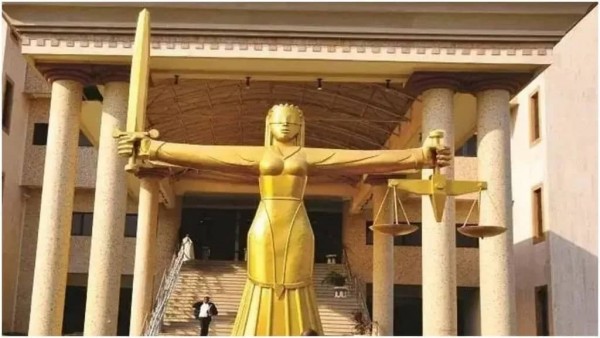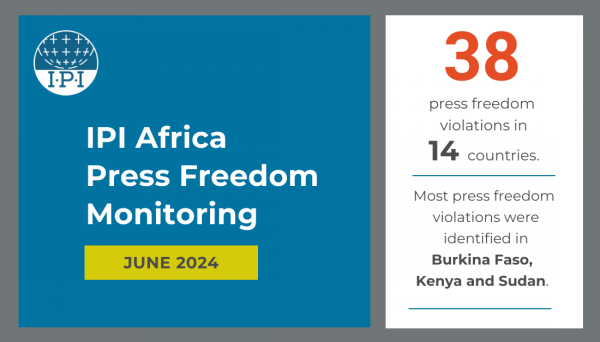Over the past year, there has been a dangerous trend of military coups in West African countries, including Mali, Burkina Faso, and Guinea-Bissau. With these coups have come increased attacks and harassment against journalists, especially those reporting on anti-coup dissent. Recent incidents, like the expulsion of a French journalist from Mali and the raid of a newsroom in Guinea-Bissau, show how journalists are being targeted. IPI calls on the governments in question to return to the rule of law and investigate all attacks on the press.
Mali
On February 7, the Malian government expelled French journalist Benjamin Roger of Jeune Afrique, a French monthly magazine that covers Africa. The government said he did not have acceptable press credentials, although he had a visa to enter the country. This follows the government’s announcement on January 31 that foreign correspondents would have more difficulty obtaining credentials.
Roger’s expulsion showcases France and Mali’s deteriorated relationship since the military coup in May 2021, which followed a previous military coup in 2020. The coup in August 2020 occurred when the Malian military, led by Assimi Goïta, ousted President Ibrahim Boubacar Keita. It was generally widely celebrated by the public because of a failing economy and alleged government corruption. Goïta acted as President Bah Ndaw’s deputy in the transitional administration toward civilian rule.
The 2021 military coup, once again led by Goïta, ousted Ndaw and Prime Minister Moctar Ouane. Goïta was angry that the military was not consulted on a cabinet reshuffle that excluded two military officials.
French President Emmanuel Macron called the 2021 coup “unacceptable” and drew back its military presence in the country, which had been helping the government fight against armed terrorist groups. In December 2021, French forces left Timbuktu, signifying its significant scaledown of troops. Mali turned to Russia for assistance and is now receiving mercenaries from a privately owned Russian paramilitary company.
The climate for international journalists – specifically those from French outlets – has been increasingly hostile. In January, a group of soldiers accused Radio France Internationale and France 24 of waging a disinformation campaign.
Guinea-Bissau
On February 7, a group of men in military uniform stormed Radio Capital FM’s studio, destroying equipment and injuring journalists. One was rushed to the hospital and another is currently in a coma. There were multiple other staff members who sustained injuries.
The day after, a journalist from the same outlet was attacked at his home by men with AK-47 rifles. According to news reports, the men opened fire but did not go inside the home.
This attack came right after an attempted coup on February 1 in Guinea-Bissau, which has seen nine coups or attempted coups since 1980. In this attempt, attackers tried to kill President Umaro Sissoco Embalo and his cabinet at the government palace. According to media reports, the attackers were linked to drug trafficking. The president has promised to fight drug trafficking, which is widespread in the country as it is a transit point to Latin America.
The president of the Journalists Union of Guinea-Bissau said on February 8 that there was a threat to journalists following the attempted coup. “Hooded people with guns entering a radio station shows that we are facing danger”, the union president wrote in a statement. “We are calling here loudly for the international community to show its face and to continue to support Guinea-Bissau and media professionals.”
Burkina Faso
On January 23, freelance reporter Henry Wilkins and Associated Press reporter Sam Mednick were detained at a military camp in the capital. They were covering the recent military coup, which ousted President Roch Kabore. The coup was led by Captain Sidsore Kader Ouedraogo, who introduced Lieutenant Colonel Paul-Henri Sandaogo Damiba as the new leader of the country. According to media reports, the military was frustrated with the government’s handling of jihadist attacks in the country.
Wilkins spoke to IPI on February 10, saying that he and Mednick went near the mutiny soldiers’ camp to take photos. When the soldiers saw them, they fired gunshots into the air and took their bags, cameras, and motorcycle.
The journalists were only detained inside the camp for about 10 to 15 minutes and then they were released, Wilkins said. While there, the mutiny soldiers listed their demands, later published by the media, including more troops for the conflict between the military and armed terrorist groups and better equipment.
Press freedom has been deteriorating in Burkina Faso since he arrived there two years ago, Wilkins said. In 2019, the government revised its penal code to criminalize the dissemination of information about terrorist attacks and security forces that could undermine public order.
In May 2021, journalists were blocked from accessing IDP sites, or official refugee sites, in Burkina Faso. This came after Oxfam released a report revealing that over one million displaced women in Burkina Faso were facing increased sexual violence, hunger, and a lack of water.
Two Spanish journalists, David Beriain and Roberto Fraile, were killed in Burkina Faso in April 2021. They were working on a documentary about poaching when unidentified gunmen ambushed them.



